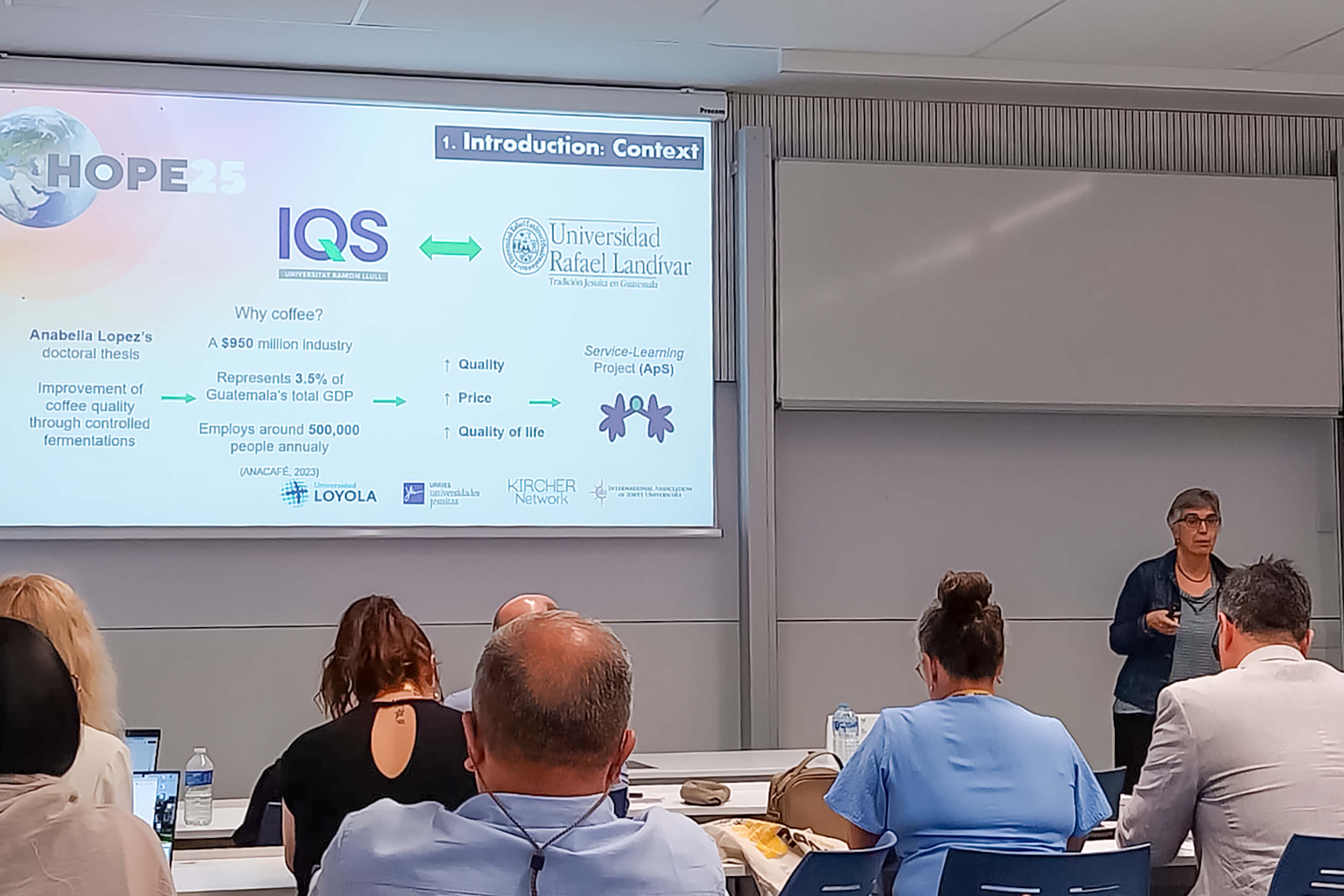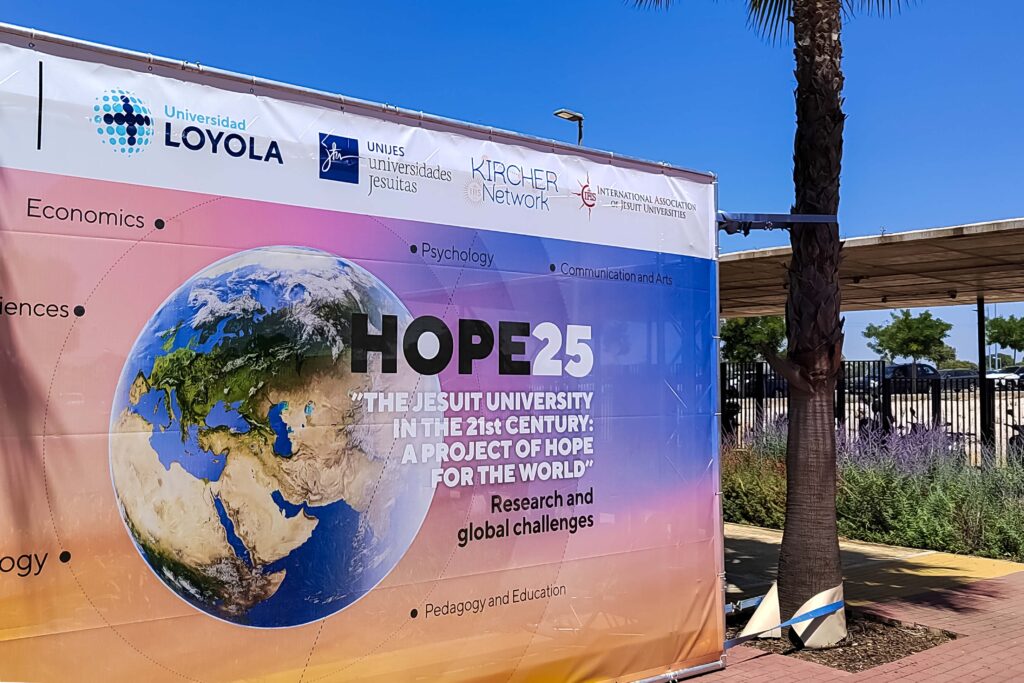From 4 to 6 June 2025, Loyola University hosted the HOPE25 International Congress entitled “The Jesuit University in the 21st Century: A Project of Hope for the World.” The event brought together more than 300 researchers from Jesuit universities across 32 countries who presented more than 260 scientific contributions focused on current global challenges from the perspective of education, science, and faith.
IQS Presents a Service Learning Project at the HOPE25 International Congress

Organized in collaboration with UNIJES, the Kircher Network, and the IAJU, the congress highlighted the Jesuit commitment to educating global, hopeful, and socially responsible citizens. Participants explored topics such as climate justice, democracy, spirituality, innovative pedagogies, and artificial intelligence.
Prominent speakers including Joseph Christie, S.J., Daniel Innerarity, Alicja Gescinska, and Nancy Tuchman underscored the importance of interdisciplinary research and transformative action inspired by the Universal Apostolic Preferences and the encyclical Laudato Si’. The congress concluded with a call to understand higher education and university research as fundamental tools to build a more just, sustainable, and hopeful future.
IQS presents a project on coffee quality in Guatemala
IQS participated in the congress with the presentation of the Final Degree Project by Santiago Murillo Amador, a Bachelor’s Degree in Chemistry student under the supervision of Dr Magda Faijes, Dr Margalida Artigues, and Dr Lourdes Margarit. His project is entitled: “Influence of fermentation processes on coffee quality: development of an HS-SPME-GC-MS method to analyse volatile compounds and determine their correlation with tasting values in coffee.”
This project forms part of an educational collaboration with the Rafael Landívar University of Guatemala, with which IQS maintains an educational collaboration agreement. The experience forms part of a project to improve the quality of coffee in the Central American country, and is closely linked to the coffee-producing communities of Escuintla, Santa Elena, and the Tomastepec cooperative in Palencia, Guatemala.
The project was presented by the IQS Service-Learning Office, although IQS believes it is essential to also make the voices of the direct participants in the project visible in order to share the real impact of this pedagogical methodology and its relevance as a tool to achieve transformative education committed to Global Justice.

Project voices: when scientific research becomes social transformation
Do you think that working together with social entities has given you extra motivation for your project? Has it given meaning to your work?
Santiago Murillo (student): “Working together with social entities gave me solid motivation. During the four years of my bachelor’s degree studies, I always wondered about applying what I learned. Thanks to this project, I’ve been able to apply all the knowledge I have acquired and it has given me the opportunity to learn many other things that could not be learned in any other way. Working on something that has a direct social impact makes my Final Degree Project more rewarding and significant. I would definitely recommend for students to take part in Service Learning projects as everyone involved greatly benefits and it leads to more special and unique projects.”
What do you think is the most noteworthy thing about working with the Service Learning methodology?
Dr Margalida Artigues (professor): “Service Learning is especially rewarding because it allows students, as seen in the case with Santiago Murillo, to apply their knowledge on projects with a highly important social background. A great example is the work done in this Final Degree Project, with the transfer of an analytical method to Guatemala in which the student was able to see first-hand the positive impact of his work in improving the quality of coffee for local communities. For me, this connection between education and social transformation is very enriching.”
Dr Magda Faijes (professor): “Contributing to a scientific and technological project, in which fermentation, gas chromatography, and statistical tool concepts such as ANOVA and PLS (undergraduate learning such as chemistry and biotechnology) have been used, and seeing how they translate into a positive social impact for many families, especially children and young people working with coffee crops in Guatemala, is an exciting experience with goals that are becoming a reality.”
Dr Lourdes Margarit (professor): “For me, the most remarkable aspect of Service Learning methodology is that it involves the creation of a team of people who collaborate in the research, coordination, and implementation of a project with practical applications to address existing needs. It has been highly rewarding to work on, as it makes it possible to contribute directly to community wellbeing while also enjoying an enriching experience.”
This project forms part of the IQS Service Learning project, which has been launched at the school to promote innovative educational methodologies that promote learning through values, putting student excellence at the service of the community and society.









